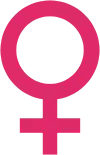Feminism in Bangladesh
Feminism in Bangladesh seeks equal rights of women in Bangladesh through social and political change. Article 28 of Bangladesh constitution states that "Women shall have equal rights with men in all spheres of the State and of public life".[1]
| Part of a series on |
| Feminism |
|---|
 |
|
|
History
Feminist movements in Bangladesh started long before its independence. During the 19th century the social reform movement, mostly carried out by male social leaders, worked to abolish practices such as infanticide, child marriage, and widow burning. Women activists in Bangladesh organized to claim their rights during the British and Pakistan period of Bangladesh. They mobilized to fight regarding issues including violence against women, economic opportunities for women, equal representation in politics for women, reproductive rights, reforming family law, and gender equality in public policies. During the Pakistan period the feminist movement was more focused on politics and national struggles.[2] The feminist movement of the 1970s and 1980s was led by professional women from urban areas.
Issues
Bangladeshi feminists
- Begum Rokeya was a notable Muslim feminist.[3]
- Kamini Roy was the first woman honours graduate in British India.[4]
- Nurun Nahar Faizannesa was a leader of the feminist movement in Bangladesh-[5]
- Sultana Kamal is a Bangladeshi lawyer and human rights activist. She serves as the Executive Director of Ain o Salish Kendra, a civil rights organization.
- Taslima Nasrin is a feminist who is known for her criticism of religion.[6]
- Syeda Razia Faiz was the first female elected member of parliament in Bangladesh.[7]
- Hasna Begum is a contemporary Bangladeshi philosopher of feminism and held the prestigious Rokeya Chair by the University Grants Commission (UGC).
- Rokeya Rahman Kabeer was a woman emancipation activist.[8]
- Masuda Khatun was a pioneering feminist who was given the nickname Agni Nagini (Fire Serpent) by Kazi Nazrul Islam.[9]
- Shaheda Mustafiz is the first female programmer of Bangladesh.[10][11]
References
- Anam, Tahmima (5 March 2014). "Bangladesh's Home Truth". The New York Times. Retrieved 24 January 2016.
- "The Women's Movement in Bangladesh". Retrieved 20 July 2018.
- Akhter, Shahida (2012). "Hossain, Roquiah Sakhawat". In Islam, Sirajul; Jamal, Ahmed A. (eds.). Banglapedia: National Encyclopedia of Bangladesh (Second ed.). Asiatic Society of Bangladesh.Administrator. "Roquia Sakhawat Hussain (Begum Rokeya)". Londoni.
- Sengupta, Subodh Chandra and Bose, Anjali (editors), 1976/1998, Sansad Bangali Charitabhidhan (Biographical dictionary) Vol I, (in Bengali), p83, ISBN 81-85626-65-0
- "Faizannesa, Nurun Nahar - Banglapedia". en.banglapedia.org. Retrieved 26 August 2017.
- Ghosh, Subhajyoti. "Why Taslima Nasreen wants to return to Bangladesh". www.bbc.com. Retrieved 23 May 2015.
- "Obituary". archive.thedailystar.net. The Daily Star. Retrieved 9 March 2016.
- "Kabeer, Rokeya Rahman - Banglapedia". en.banglapedia.org. Retrieved 3 November 2017.
- "Khatun, Masuda - Banglapedia". en.banglapedia.org. Retrieved 3 November 2017.
- "তিনি দেশের প্রথম নারী প্রোগ্রামার". Prothom Alo. 10 March 2018. Retrieved 21 July 2019.
- "প্রোগ্রামিং-এ 'প্রথমা' শাহেদা মুস্তাফিজ". Ananya. 17 July 2019. Retrieved 21 July 2019.